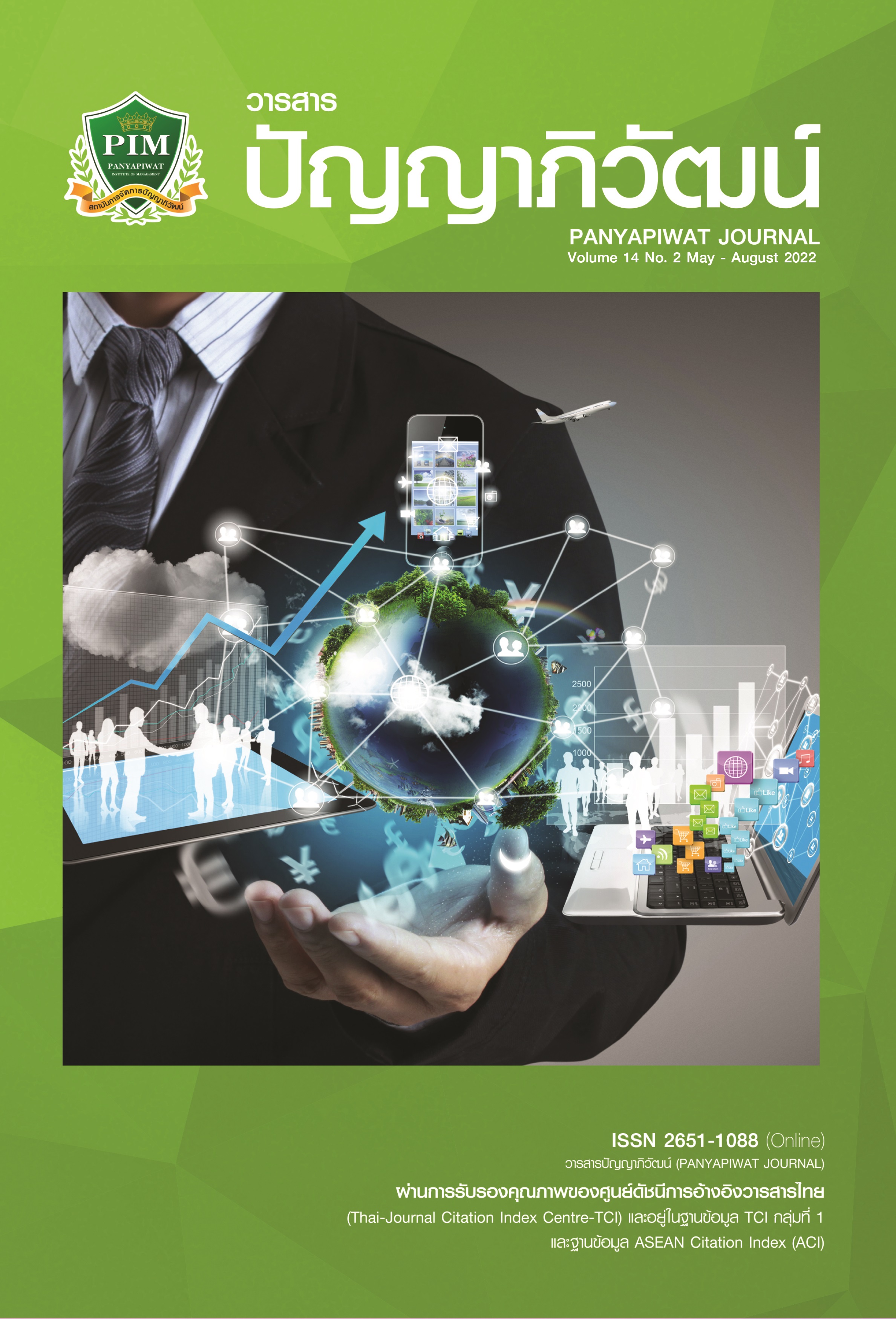ปัจจัยความสำเร็จและผลลัพธ์ในการพัฒนาวิชาชีพครูและบุคลากรทางการศึกษา แบบชุมชนแห่งการเรียนรู้ทางวิชาชีพของคุรุสภา
Main Article Content
บทคัดย่อ
การวิจัยครั้งนี้มีวัตถุประสงค์เพื่อศึกษาปัจจัยความสำเร็จ และผลลัพธ์ในการพัฒนาวิชาชีพครูแบบชุมชนแห่งการเรียนรู้ทางวิชาชีพของคุรุสภา โดยเป็นการเก็บรวบรวมข้อมูลเชิงคุณภาพ ผู้ให้ข้อมูลประกอบด้วยคณะกรรมการดำเนินงาน ผู้บริหารสถานศึกษา ครู และบุคลากรทางการศึกษาที่ได้รับการสนับสนุนในโครงการพัฒนาวิชาชีพครูและบุคลากรทางการศึกษาแบบชุมชนแห่งการเรียนรู้ทางวิชาชีพ ประจำปีการศึกษา 2559-2561จำนวน 28 คน เครื่องมือที่ใช้คือ แบบสัมภาษณ์แบบกึ่งโครงสร้าง
ผลการวิจัยพบว่า ปัจจัยความสำเร็จของโครงการ ได้แก่ 1) ด้านบริบท ครูและบุคลากรทางการศึกษาทุกระดับเห็นความสำคัญและความจำเป็นของการพัฒนาวิชาชีพครูด้วยกระบวนการ PLC 2) ด้านปัจจัยนำเข้างบประมาณที่ได้รับการสนับสนุนและกิจกรรมมีความเหมาะสม 3) ด้านกระบวนการ รูปแบบการกำกับติดตามอย่างกัลยาณมิตร และการช่วยเหลือประสานงานจากคุรุสภาเป็นอย่างดี ผลลัพธ์ของโครงการ ได้แก่ 1) ด้านผลกระทบ วัฒนธรรมองค์กรปลี่ยนแปลงไปในเชิงบวกทั้งครู ผู้บริหาร ผู้เรียนมีผลสัมฤทธิ์ทางการเรียน และคุณลักษณะต่าง ๆ ที่ดีขึ้น 2) ด้านประสิทธิผล ครูมีความสุข สนุกในการทำงาน แก้ปัญหาในชั้นเรียนได้อย่างเป็นระบบ และจัดการเรียนการสอนได้อย่างมีประสิทธิภาพ 3) ด้านความยั่งยืน คุรุสภามีแนวทางการจัดทำแผนระยะยาวที่ชัดเจนและดำเนินงานอย่างต่อเนื่อง สร้างความเข้าใจกับผู้เชี่ยวชาญกลุ่มต่าง ๆ 4) ด้านการถ่ายทอดความสำเร็จ มีการจัดประชุมสัมมนาเพื่อเผยแพร่ตัวอย่างความสำเร็จในการดำเนินงาน
Article Details

อนุญาตภายใต้เงื่อนไข Creative Commons Attribution-NonCommercial-NoDerivatives 4.0 International License.
“ข้าพเจ้าและผู้เขียนร่วม (ถ้ามี) ขอรับรองว่า บทความที่เสนอมานี้ยังไม่เคยได้รับการตีพิมพ์และไม่ได้อยู่ระหว่างกระบวนการพิจารณาลงตีพิมพ์ในวารสารหรือแหล่งเผยแพร่อื่นใด ข้าพเจ้าและผู้เขียนร่วมยอมรับหลักเกณฑ์การพิจารณาต้นฉบับ ทั้งยินยอมให้กองบรรณาธิการมีสิทธิ์พิจารณาและตรวจแก้ต้นฉบับได้ตามที่เห็นสมควร พร้อมนี้ขอมอบลิขสิทธิ์บทความที่ได้รับการตีพิมพ์ให้แก่สถาบันการจัดการปัญญาภิวัฒน์หากมีการฟ้องร้องเรื่องการละเมิดลิขสิทธิ์เกี่ยวกับภาพ กราฟ ข้อความส่วนใดส่วนหนึ่งและ/หรือข้อคิดเห็นที่ปรากฏในบทความข้าพเจ้าและผู้เขียนร่วมยินยอมรับผิดชอบแต่เพียงฝ่ายเดียว”
เอกสารอ้างอิง
Buosont, R. (2012). CIPP and CIPIEST evaluation models: Mistaken and precise concepts of application. Rattanabb. http://www.rattanabb.com/html/CIPP.pdf [in Thai]
Chen, P., & Wang, T. (2015). Exploring the evolution of teacher professional learning community: A longitudinal case study at a Taiwanese high school. Teacher Development, 19(4), 427-444.
Choi, J., & Sazawa, C. (2016). World language teachers exploring cultural teaching through professional learning community. Electronic Journal of Foreign Language Teaching, 13(1), 68-81.
Chookemnerd, W., & Sungtong, E. (2014). A model of professional learning communities of teachers toward 21st century learning of schools in Thailand. Hatyai Academic Journal, 12(2), 123-134. [in Thai]
Chookhampang, C. (2017). Professional learning community. Journal of Educational Measurement Mahasarakham University, 23(2), 1-6. [in Thai]
Damjanovic, V., & Blank, J. (2018). Building a professional learning community: Teacher’s documentation of and reflection on preschoolers’ work. Early Childhood Education Journal, 46, 567-575.
DuFour, R., Eakey, R., & Many, T. (2006). Learning by doing a handbook for professional learning communities at work. Solution Tree Press.
Kanjanawasi, S. (2015). Changes of CIPP model: Meaning, importance, and development. Journal of Education Rajabhat Maha Sarakham University, 12(2), 11-20. [in Thai]
Lee, D. H. L., Hong, H., Tay, W. Y., & Lee, W. O. (2014). Professional learning communities in Singapore schools. Journal of Co-operative Studies, Special Issue: Transformative Power of Co-operation in Education, 46(2), 53-56.
Little, J. W. (1993). Excellence in professional development and professional community. Office of Educational Research and Improvement.
Luis, K. S., & Kruse, S. D. (1995). Professional and community: Perspectives on reforming urban schools. Corwin Press.
Ministry of Education. (2010). Schools as professional learning communities. Ministry of Education.
Niemi, H. (2015). Teacher professional development in Finland: Towards a more holistic approach. Psychology, Society and Education, 7(3), 278-294.
Office of the Education Council. (2018). Education in Thailand 2018. Prigwhan Graphic. [in Thai]
Olivier, D. F., & Huffman, J. B. (2016). Professional learning community process in the United States: Conceptualisation of the process and district support for schools. Asia Pacific Journal of Education, 36(2), 301-317.
Panich, V. (2012). How to create learning for students in the 21st century. Sodsri-Saritwong Foundation. [in Thai]
Phuangsomjit, C. (2017). Professional learning community and guidelines for application in educational institutions. STOU Education Journal, 10(1), 34-41.
Senge, P. M. (1990). The fifth discipline: The art and practice of the learning organization. MCB UP Ltd.
Sergiovanni, T. (1994). Building community in schools. Jossey Bass.
Stoll, L., & Louis, K. S. (2007). Professional learning community. Open University Press.
Stufflebeam, D. L. (2015). CIPP evaluation model checklist: A tool for applying the CIPP model to assess projects and programs. Western Michigan University Evaluation Center.
Stufflebeam, D. L., & Zhang, G. (2017). The CIPP evaluation model: How to evaluate for improvement and accountability. Guilford.
Yamkasikorn, M. (2016). Professional learning community: Challenges towards teacher self-change. In The Learning Innovation Research and Education Management for the Sustainable Development 2016 (pp. 39-46). Office of Teacher Council of Thailand. [in Thai]


